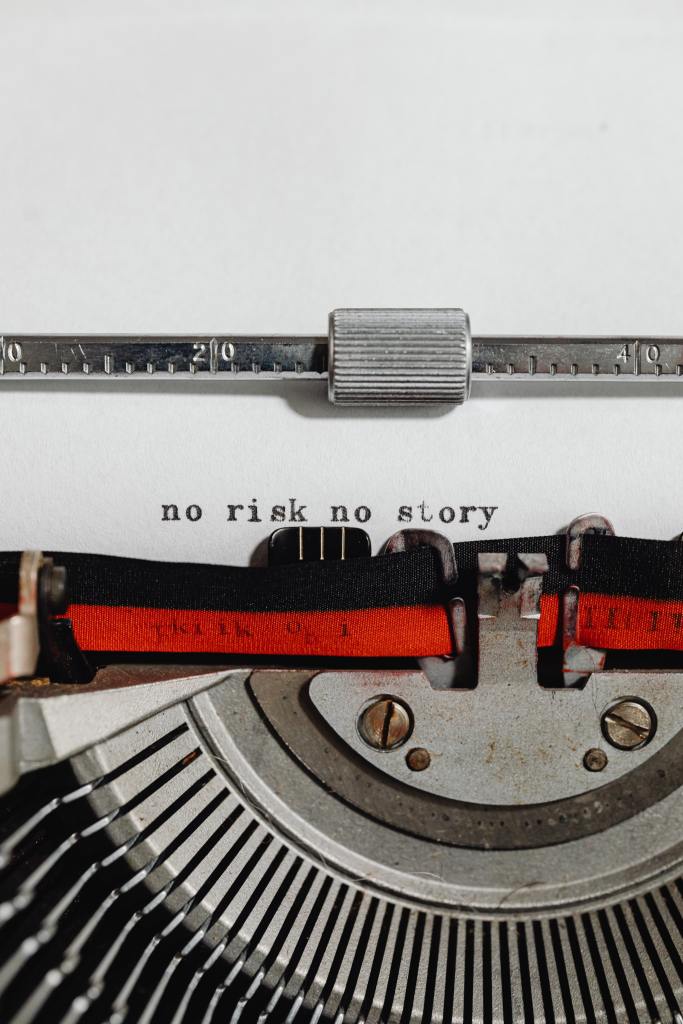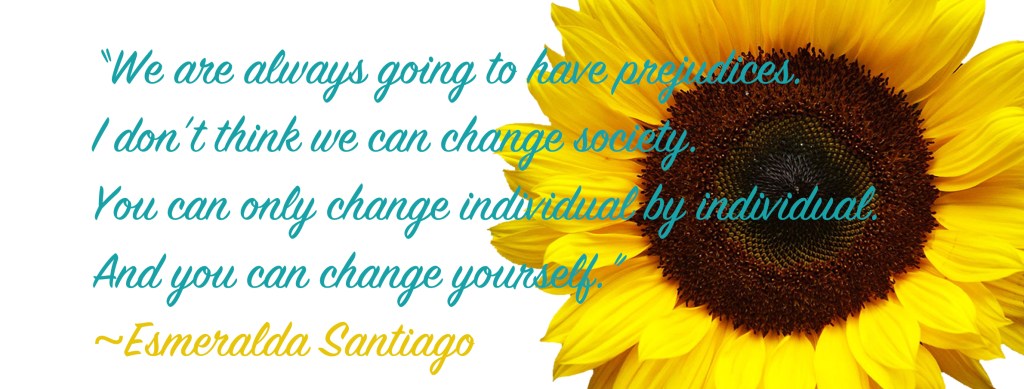Being A Minority Writer: Why We Don’t Fit In A Box
Aside Posted on Updated on

Woman. Writer. Hard Worker. Sister. Wife. Mother. Aunt. Best Friend. Korean. Puerto Rican. Mixed Minority. Non-Bilingual. American. Educated. Social Media Maven. Content Producer. Book-Nerd. True Crime Buff. Insomniac. Major Depression Battler. Self-Help Junkie. Sushi Fanatic. Nature-Lover. Dog Mom. Eternal Learner. Human.

None of us fit in one box, and most of us wear many hats. That’s why I’ve never liked questions where I’m not just asked but forced to choose one ethnicity. Am I Hispanic or Latino? Well, yes, but I’m also half Korean. Where’s the box for that? You don’t see— Are you German? You don’t see—Are you Irish? It’s only—Are you Hispanic or Latino? That damn question is everywhere and on everything and not just job applications. I’ve always wondered why the hell does it even matter that I’m half Hispanic or Latino? It forced me to admit one very hard truth—it does matter to our society. Our society wants us to fit in something that they can identify, to help them categorize us.
So, I wonder if someone like me has a place in the traditional publishing world? Someone who is a non-Spanish speaking, non-Korean speaking American Mutt. An English-only speaker, holder of a master’s degree, an as-brown-as-I am-yellow kind of girl who loves to write and desires to be traditionally published without modern racism standing in the way.

As a writer, I often take risks in my work. I like to write unique POVs, controversial subject matter and explore morally grey characters. Though as a woman of color, I do worry about stuff other writers might not need to face. Such as the following: Will I be accepted as a writer who can write any color, creed, or person from any social stature, or am I expected to only write from a minority POV because I’m a person of color? Are all my characters supposed to be minorities like me? Will my books sell if my last name is too ethnic? To reach a broader audience, do I need to write under my more non-ethnic name, which would be my legal married surname—Gray? These may be stupid questions to you, or you might be rolling your eyes and saying…oh, come on. Of course, everyone will be fine with your Hispanic maiden last name. But, I scour the bookstores and am hard-pressed to not only find a major lack of Hispanic writers flooding the bookshelves, but a lack of Hispanic authors that proudly use ethnic names.
I go through these concerns, despite living in the twenty-first century. Let’s face it, subconscious prejudices do exist. There’s even prejudice against male and female writers of all colors. That’s why many authors choose to pick initials and last name only as a pen name because they wish to target a wider audience. Thus they go with something that sounds androgynous. Why did Joann Rowling use J.K. Rowling for her Harry Potter books and then use the male pen name Robert Galbraith? Is it because she was writing a thriller and thought people would take her more seriously under a male name? She didn’t pick a female pen name for her adult books; she chose a male pseudonym. Why is a male name more powerful or more apt to sell books than a female name? Gender is often a concern for both male and female writers. I’ve worked with male beta readers that worried about the same thing. They were concerned about a potential bias if they’re writing female characters. In fact, I know of one person who wrote very convincingly from an Asian woman’s POV when he’s a white male. His entire cast, save one white dude, were all Asians. Other writers gave him a very hard time for doing this and likened it to a mortal writing sin.
Personally, as a half-Asian woman, I didn’t have an issue with it at all. I think we should be allowed to write whatever characters of any ethnicity and gender POV we want, no matter what ethnic origin and nationality we’ve come from. But it seems, unless we’re Stephen King and have already made a name for ourselves, first-time writers trying to get published are more scrutinized. We’re scrutinized especially for sensitivity in books now. While the publishing world wants us to be careful not to offend, they still choose to greenlight more book deals by Caucasian authors.

Back to being a mixed ethnicity, in general, there are still very few minority writers, especially Hispanic ones. Yes, you can Google this and find a handful of articles or blogs highlighting top Latino books of a certain year to read. The fact that there are articles that make it a big deal and magnify Latino books tells you that there aren’t many out there. Not in comparison anyway to the millions of books published by non-Hispanic authors since the beginning of time. So, we’re still the under-represented voices. While the industry is trying to change that, statistically, white writers get published more. This isn’t just a made-up thing. It’s a fact. Over 80% of published authors are white. More Anglo-American writers hit the New York Times best-sellers than minorities by a whopping 76%! Yet, the 2020 census came out, showing that the U.S. is more diverse and more multi-racial than ever before. This indicates a huge disconnect between the publishing world and who they actually represent.
It reminds me of a study where resumes were submitted under a white name and an ethnic name. It was the exact same resume, but the white name got more responses than the ethnic name. Hmmm? Could this type of subconscious prejudice exist in the publishing world of 2021, 2022, and beyond?
As a minority writer, I’ve often felt like giving up and throwing in the towel. Hence, my long sabbatical from my blogging. I also battle with clinical major depression, and there are days I don’t always win the fight. But I’m back and hope I can keep a better blogging schedule. It takes focus and discipline to keep writing, no matter what race or pronoun, or word of choice that best describes you. At the end of the day, rejection is colorless and a huge obstacle in the traditional and self-publishing worlds. As writers, we’re faced with publishers rejecting us and negative reviews from readers who don’t connect with our visions. It hurts. It sucks. It requires Teflon skin that even still gets worn down and, yes, penetrated no matter how strong we think we might be.
Taking ethnicity out of the equation, at the end of the day, we all have to answer one question. Did we write the best book we have in us? If our answer is yes, then that’s all that really matters. The industry is so subjective, and not everyone will like your style, my style, our style. They may not connect whatsoever with our vision. We can only pray to the Gods, send good vibes to the universe, and hope that someone will connect, that someone will read, love, and get it. It’s a matter of believing in oneself when no one else will. We should continue to write not only for the love of the craft but to get better, and even if it’s for an audience of one.
We can only stay cautiously optimistic that the industry will change to be more inclusive for all writers, for all colors, while being willing to empower uniqueness and lift up ethnic names.

This entry was posted in Writing and tagged Authors, Books, Hispanic, Minorities, Modern Racism, Traditional Publishing, Writers, Writing.
9 thoughts on “Being A Minority Writer: Why We Don’t Fit In A Box”
Leave a comment Cancel reply
This site uses Akismet to reduce spam. Learn how your comment data is processed.

August 13, 2021 at 11:18 AM
Great read and I agree, there isn’t enough diversity out there. Hope this changes for the publishing world.
LikeLiked by 1 person
August 13, 2021 at 11:31 AM
Thank you Stephanie. I hope it changes too and do think diversity in books is now becoming something requested. Though, we still have a ways to go.
LikeLiked by 1 person
August 13, 2021 at 11:24 AM
Don’t give up. I follow your blogs and was wondering where you were. Good to see you back at it again. I love your name and you should continue with it. Hoping you strike that book deal you’ve been dreaming of. You deserve it.
LikeLiked by 1 person
August 13, 2021 at 11:32 AM
Thank you for following me and for your kind words. It means a lot. ❤
LikeLiked by 2 people
August 19, 2021 at 11:24 AM
It’s astounding how very few minorities get publishing contracts compared to Caucasians. I really hope this changes. There are so many talented people of all colors that are waiting to be discovered. It’s the editors at publishing houses that should be willing to greenlight more minority written stories.
LikeLiked by 2 people
August 19, 2021 at 7:11 PM
As someone who sits within many of the societal boxes, I appreciate being reminded of how differently people can be treated when they are not. This blog you have written is filled with so much hope for the future, amongst the truth of what is now, and how we can be part of sustainable, positive change.
Thank you for sharing this, especially that last paragraph. If we’ve written the best book we can, learned what we can improve both on our own and from others, we’re *so* doing the best we can. Kudos to you for your hard work, every day, and offering support and encouragement for others, no matter where we’ve started or at what stage we are along our writing journey.
Kia kaha (stay strong) and keep on writing. You’ve got a gift there. ❤️
LikeLiked by 2 people
September 1, 2021 at 3:52 PM
Interesting read on impact of intersectionality and diversity in the world of writing and publishing. Thanks for sharing. Dee
LikeLiked by 2 people
March 19, 2022 at 5:21 PM
Representation is everything. We need more voices like yours to normalize the experiences of people of color in the literary published world. Keep writing!
LikeLiked by 1 person
March 19, 2022 at 5:30 PM
Thank you for your kind words.
LikeLike